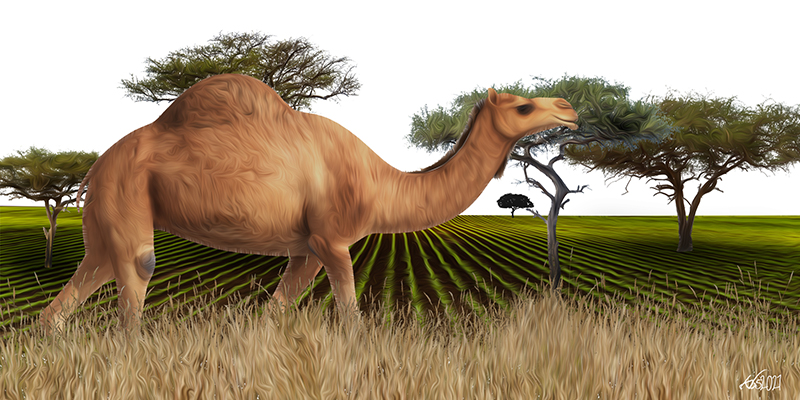One afternoon in the heart of the Waso rangelands in Isiolo County, I was debating with Borana elders on the best measures to mitigate the effects of the recurrent droughts. An elder rose and gave wise counsel, saying he was nostalgic about the good old days, “when we had plenty of milk and households in Waso could effortlessly fend for themselves without help”.
The elder said that because of climate change and “external help”, they slaughter and sell part of the herd at a low price to be eaten by others for nutritional gain. He concluded, “if they share our concern, tell the external agents to outwit the vultures and come earlier”, implying that most support arrives too late, at the height of an emergency, when herds have been partly decimated by the drought and the vultures have already arrived to scavenge for carcasses.
While said tongue-in-cheek, the elder’s request underscores the frustration felt by the “beneficiaries” because of the external agencies’ apparent lack of a basic understanding of dryland dynamics and the challenges of getting needs right.
The drylands
The drylands are an extremely heterogeneous environment characterised by among others, low erratic rainfall, high inter-annual climate variability and ecological uncertainty. Globally, drylands occupy 41 per cent of the earth’s land surface and are home to approximately 35 per cent of its population. The dominant livelihood systems in the drylands are pastoralism, agro-pastoralism, and some rain-fed agriculture where the local communities tap into their knowledge to live with uncertainty. In Sub-Saharan Africa alone, an estimated 50 million pastoralists rely on the drylands environment for their livelihoods.
Although historically these regions are considered to be of low economic potential, their diverse pastoral groups play an important role in the modern economy. For example, livestock production in the drylands contributes over 35 per cent of the agricultural sector’s contribution to Kenya’s GDP and accounts for over 80 per cent of household income in the drier regions, employing thousands of people in livestock production and marketing.
Yet despite the potential of the arid and semi-arid areas, the majority of the population in this regions of Kenya lives in deep rural poverty. According to a recently published socio-economic blueprint for Frontier Counties, about 20.5 per cent of Kenya’s poor live in the frontier counties and 64.2 per cent of this population lives below the poverty line, compared to a national average of 36.1 per cent.
The reasons for this lie in both how national planners and policymakers view dryland areas and how investment decisions are made in these regions. Although there have been some changes in some drylands counties following devolution, the knowledge base that has shaped development in this region largely remains the same.
Common misconceptions
Knowledge is key in the interaction of humans with the ecological system, especially in arid areas. However, understanding the challenges facing this important region has been impeded by a number of misconceptions including that: compared with other areas which have traditionally been recognised as “high potential areas”, drylands are remote, poor and degraded and are of little potential except for tourism; dryland areas have low biological productivity compared to the highlands and as such, they are of little economic value apart from providing a means of subsistence to those who live there; dryland communities are a helpless group with weak means and a low adaptive capacity to manage uncertainty; drylands cannot yield a satisfactory return on investment due to the climate risk associated with variable and erratic rainfall; dryland communities are weakly integrated into markets because of their remoteness, their poverty and their reluctance to sell their animals.
Most externally-driven technical solutions continue to be based on misconceptions, including critical elements of planning which are based on partial values of these areas, rather than their total economic value. Being unable to place a value on marketable assets in the arid and semi-arid areas of Kenya, decision-makers dwell much more on the erroneous narrative that pastoralists are not market-oriented. Substantial resources are spent on trying to make pastoralists responsive to the market without addressing the underlying structural challenges of the livestock value chains.
Over the years, the government’s attempts to tap the livestock wealth of pastoralists have not been systematic but have come in waves. These attempts started in the mid-1930s and provoked the famous Akamba Political Protest against forced destocking and the failed attempts to develop stock auctions. Then came the era of the ecological argument that is based on the carrying capacity of the range, and the efforts to force a higher offtake rate in the second half of the 1950s. There followed a number of disjointed livestock development programmes in the late 1960s and early 1970s. Scholars argue that “unfair terms of trade” made these government-led initiatives unattractive.
Pastoralist value chains
Although livestock has traditionally constituted an important currency in most African societies, this is no longer the case in Kenya which has a “crop bias” where agricultural products like tea and coffee are priority export crops and are therefore given the necessary policy support.
This bias was introduced during the colonial era where the settler-occupied “White Highlands” constituted the political and economic core. While there was a fair demand for livestock products in the downcountry, the market was tailored to the needs of the white settlers who influenced the location of key infrastructure, regulations, and governance that barred African herd owners from integrating into the national marketing structure. A good example is the location and operation of the Kenya Meat Commission, which was purposely designed to support the movement of animals slaughtered by white settlers and had little consideration for African herd owners.
Little has changed since independence and post-liberalisation. Persisting elements of colonial legislation such as restrictive livestock movement permits, unfavourable movement schedules and restrictions on trading licences have historically skewed the pastoralist’s relationship to the market.
To date, markets are largely controlled through the organisation of ethnic trade networks where some non-pastoralist groups have better connections to the urban space and a more supportive business environment and subsequently control important activities downstream of the chain.
A good example is the trade network for sheep and goats that extends from Moyale to Kariobangi in Nairobi that systematically locks other pastoralist groups out of the downstream trade at the terminal market. The ownership of slaughter facilities and connection to specific clients for largescale slaughter offers members of this trade network certain preferential trade advantages.
Markets are largely controlled through the organisation of ethnic trade networks where some non-pastoralist groups have better connections to the urban space.
Generally, the trade in livestock from the arid north has always been risky and full of technical pitfalls. Even for today’s professionals, it is booby-trapped with many uncertainties that call for constant creativity and business shrewdness to survive the perennial losses.
The trade in live animals presents multiple risks in the form of quantity losses (reduced weight and number) and quality losses such as altered physical appearance. Animals have a limited shelf life, particularly in the urban environment; after being taken out of their production environment, their appearance deteriorates due to the different climatic conditions and lack of proper forage, which reduces their potential selling price. At times, major losses occur when the animals cannot be sold immediately and their upkeep at the terminal markets leads to high transaction costs.
There are also economic losses, which represent the difference between the potential and the actual economic benefits. In effect, at almost every stage, the livestock entrepreneur is faced with the daunting task of making risky decisions mostly based on incomplete information and under duress.
A second technical problem is the lack of clear demand and supply specifications. Different markets favour different types of livestock while the retail prices fluctuate all the time in tandem with changes in these forces of supply and demand. A trader must make delicate decisions almost every day as to what kind of animals they should buy, in which areas they can buy the livestock, and which of these areas offer supplies at the lowest price. At the same time, the trader must also have some knowledge of which terminal market in the downcountry will offer him the widest profit margin.
As the trade network extends towards the terminal markets in Nairobi, trade relations between the pastoralist traders and the clients who could share more precise market information are further weakened, widening the gap between supply and demand and increasing the economic losses of the traders. It is thus essential that traders have accurate day-to-day information about the shifting supply and demand.
The third problem that faces traders are the unfavourable terms of trade along the pastoral livestock value chain due to the many structural challenges related to price volatility, information asymmetry along the chain, high transaction costs and weak livestock marketing policies.
The long absence of a comprehensive livestock marketing policy (the livestock and livestock product marketing board bill was only passed in 2019) set the stage for minimal investments in marketing infrastructure such as meat processing facilities, cold chains, logistics, and limited coordination among actors.
This has resulted in weak governance of the value chain and contributed to post-harvest losses. Although some marketing aspects were incorporated into the National Livestock Policy Sessional Paper no. 2 of 2008, it still does not specify in detail ways to streamline livestock marketing investments and the sustainable integration of pastoralist livestock producers into the value chains.
Inclusive value chain
As the northern arid areas increasingly become indispensable to the national economy in the face of the emerging oil boom and the expansion of infrastructure corridors, there is a need to realign the value chain agenda with government, donor, and private sector investment priorities.
Already, many county governments in arid and semi-arid counties are leaning towards the regionalisation of livestock markets through the construction of large-scale abattoirs (in Marsabit, Isiolo, Samburu, Wajir and Garissa Counties) and targeting of high-value meat export markets in the Arabian Peninsula. While such efforts are welcome, they should be preceded by discussions on the governance of the value chain, particularly on the position of pastoralist producers in the chain, models of the proposed trading arrangements and opportunities to tap into livestock traceability and other associated opportunities for premium pricing of pastoralist livestock.
The key to unlocking the pastoralist value chain is establishing standards and linkages. The coordination of the value chain from upstream to downstream, improving the flow of market information and price accuracy, and providing a wider choice of potential buyers to livestock entrepreneurs and producers from arid areas are all necessary interventions. In some countries, more transparent trading arrangements, such as livestock auctions, have been tested and have proven successful at improving price transparency, coordination of sales and offering price competitiveness to livestock producers. To this end, the earlier we embrace an ICT trading platform as a step towards improving access to livestock market information the better.
The key to unlocking the pastoralist value chain is in establishing standards and linkages.
In effect, it is important to invest in appropriate ICT technologies that can offer a mechanism to crowdsource market prices to make real-time price information available to buyers and sellers, create a platform for open purchase and sales, improve logistics by maximizing availability and use of transport, and publicise the availability of water, vaccinations, breeding and financial services, among others.
Although still in their early stages, online livestock trading platforms such as Cowsoko are emerging to fix supply-side issues, address limited demand-side market information and improve accessibility to quality cattle.
Invest to produce quality animals
Improvement in rangeland management is another important aspect that needs proper investment. This should start with participatory rangeland mapping to articulate priorities such as the protection of key grazing resources and seasonal access. This could be complemented with a Geographical Information System (GIS) to produce digital maps displaying high spatial precision resource distribution.
Empowering local level governance systems such as Dhedha — the highest geographical unit for resource management among Borana herders — should follow such participatory mapping exercises. County assemblies should support these local grazing management institutions by developing appropriate by-laws. This will necessitate capacity building in by-law formulation and facilitating the by-law development process by the county assemblies. Investment in rangeland governance through agreements and the development of enforcement mechanisms in selected arid and semi-arid counties will also reduce incidences of conflict and foster peaceful coexistence within an agreed governance framework.
The earlier we embrace an ICT trading platform as a step towards improving access to livestock market information the better.
To improve the quality of animals, interventions in animal production should focus on boosting inputs and extension services. Input markets are flooded with sub-standard products, which expose livestock producers and affect the quality of their product. There is a need to streamline production support by embracing modern e-financing tools such as through the e-voucher, a customised debit (ATM) card containing different “e-wallets” which livestock owners can use to make purchases from selected agro-vets, enabling them to access various inputs such as vaccines, medicines, feed, feed supplements, extension services, veterinary care, Artificial Insemination services, among others.
In this regard, valuable lessons can be learned from the IFAD-financed Kenya Cereal Enhancement Programme – Climate-Resilient Agricultural Livelihoods Window (KCEP-CRAL) project where an electronic “e-voucher” scheme was extensively utilised to improve farmers’ access to Agri-inputs and to offer coordinated solutions through Public-Private-Producer Partnerships.








